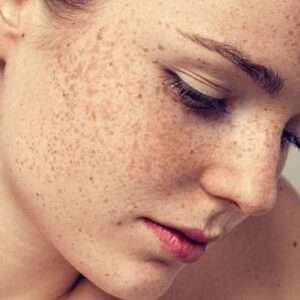Imagine waking up each morning, looking into the mirror, and watching your confidence dwindle as you see those pesky dark spots on your cheeks.
You’ve attempted turmeric masks, lemon scrubs, and every “miracle” cream the local bazaar assured would erase them. But the spots persist, a constant thorn in the battle with your skin. For far too many Pakistanis, this is not simply a skin issue—it’s an everyday battle that impacts self-esteem. But Contemporary aesthetic treatment has flipped this script on its head, providing the best treatment for pigmentation on the face in Pakistan. Let’s see how you can regain your glow.
Pigmentation: What Are the Root Causes?
Pigmentation results from the overproduction of melanin—the pigment that decides skin color—resulting in the formation of brown spots, melasma, or an uneven complexion.
In Pakistan, causes such as:
- Prolonged sun exposure
- Hormonal changes (particularly during pregnancy or when taking birth control pills)
- Environmental pollution
- Heredity
Conventional home remedies are usually ineffective since they treat symptoms, not causes. Moreover, some home remedies cause skin irritation, making the issue even more complicated.
Pakistan’s intense sunlight and urban pollution are a mixture that forms a recipe for skin damage. UV light penetrates deeply and provokes melanocytes (pigment cells) to produce excess . Hormonal fluctuations, a condition present in women with PCOS or menopause, also add to intractable melasma.
Major Treatments for Pigmentation by the Clinic of Dr. Fazeela Abbasi
1. Chemical Peels: The Gentle Eraser
Custom blends of alpha-hydroxy acids (AHAs) or trichloroacetic acid (TCA) exfoliate the top skin layer, fading brown spots and revealing healthier skin.
- Peels at our clinic are customized to your skin type—gentle lactic acid for sensitivity or glycolic acid for oily skin.
- Minimal downtime (mild redness for hours) makes it ideal for busy lifestyles.
- Most see improvement in 2–3 treatments with sun protection.
2. Laser Therapy: An Exercise in Precision
Q-switched Nd: YAG lasers remove melanin deposits without damaging the surrounding tissue.
- Suitable for deep sun or aging spots
- Treatment takes 15–30 minutes with a stinging feeling
- For Pakistani skin types prone to post-inflammatory pigmentation, we adjust settings for safety
- Most respond with 60–80% spot reduction in 3–5 sessions
3. Microdermabrasion: The Refresh Button
This non-surgical treatment peels away dead cells using minute crystals, promoting collagen and evening out superficial pigmentation.
- Coupled with cooling aloe vera gels
- Best for beginners or pre-event glow
- Blend with brightening serums for full effects
4. Topical Prescriptions: Your Daily Defense
Professional-strength hydroquinone creams, kojic acid, or retinoid creams reduce pigmentation under supervision.
- Carefully approached to prevent side effects
- Tranexamic acid may be employed to inhibit melanin-producing enzymes in hormonal melasma
5. Microneedling with PRP: Nature’s Healing Power
Small needles trigger skin renewal, and platelet-rich plasma (PRP) hastens healing and fades dark spots.
- Renowned for evening out pigmentation and texture
- This double-benefit treatment is long-term
Why Professional Care Beats Home Remedies
While dadi maa ke nuskhe (grandmother’s remedies) can be culturally attractive, pigmentation could be more than what you can find in the kitchen.
- Lemon juice strips the skin’s protective layer and makes it sun-sensitive
- Turmeric barely penetrates deep enough
Evidence-based clinical treatments address root causes.
A plan is drawn up after examining the skin at Dr. Fazeela Abbasi Clinic, considering lifestyle, skin type, and severity of pigmentation.
Case Study:
Take a 34-year-old mother from Rawalpindi: DIY yogurt masks didn’t help after melasma due to pregnancy. Chemical peels with PRP microneedling reduced her pigmentation by 70% within two months.
“I finally feel like myself again,” she said.
The Sun Factor: Your Skin’s Worst Enemy
In Pakistan’s hot climate, UV is the main cause of pigmentation.
Broad-spectrum sunscreen (SPF 50+) is essential—UV light passes through glass and clothing, and pollution is the icing on the cake.
We suggest light, non-greasy products appropriate for tropical climates.
Pro tip: Reapply sunscreen every 3 hours when you’re outdoors.
Makeup users can use mineral-based SPF powders for a fast touch-up.
Lifestyle Changes to Support Your Dermatological Journey
Small modifications improve results:
- Diet: Include antioxidant-rich foods such as berries and green tea
- Stress Management: Cortisol spikes worsen pigmentation—try yoga or meditation
- Skincare: Avoid harsh scrubs; use pH-balanced cleansers and vitamin C serums
Aftercare: Staying Ahead of Pigmentation
Post-treatment maintenance is crucial.
- Avoid the sun
- Use gentle cleansers
- Moisturize with ceramide or hyaluronic acid-based products
We provide personalized aftercare kits with healing creams and sunscreen samples.
Follow-ups are a must to ensure long-term improvement—pigmentation control is not a one-time fix.
Your Smoother Skin Journey Starts Here
Pigmentation does not need to control your life.
At Dr. Fazeela Abbasi Clinic Islamabad, we combine the most innovative technology with individualized care to bring results to you.
Whether you’re a career woman, a new mom, or fed up with camouflaging with makeup, we can assist you.
Myth-Busting Corner
- Myth: “Laser treatments thin the skin.”
Fact: Lasers stimulate collagen, which thickens skin. - Myth: “Pigmentation always returns.”
Fact: Effects last for years with sun protection and care.
Ready to say goodbye to hyperpigmentation?
Book an appointment with us to find out why our treatments are the best in Pakistan.
Your skin is worth no less.

